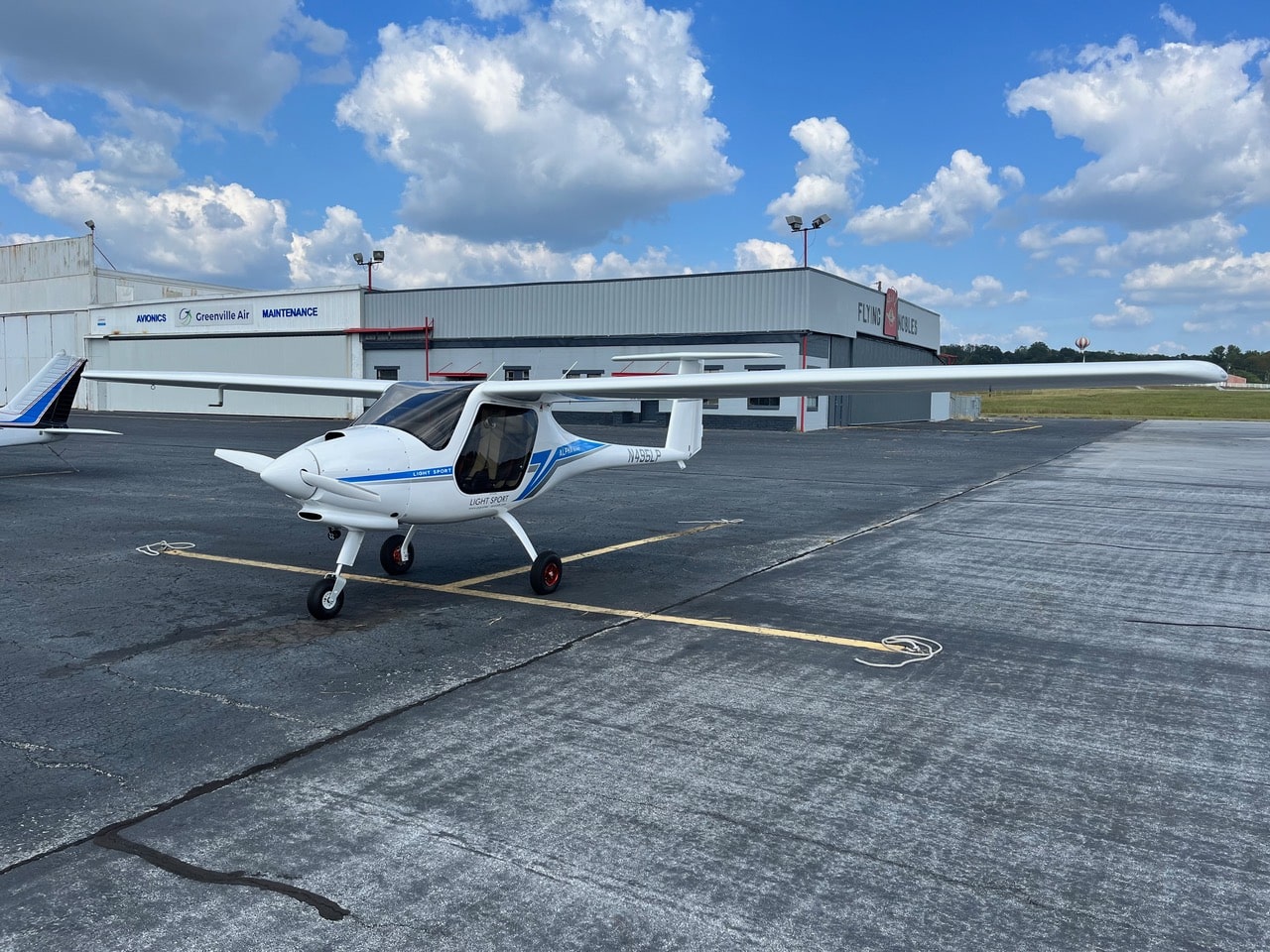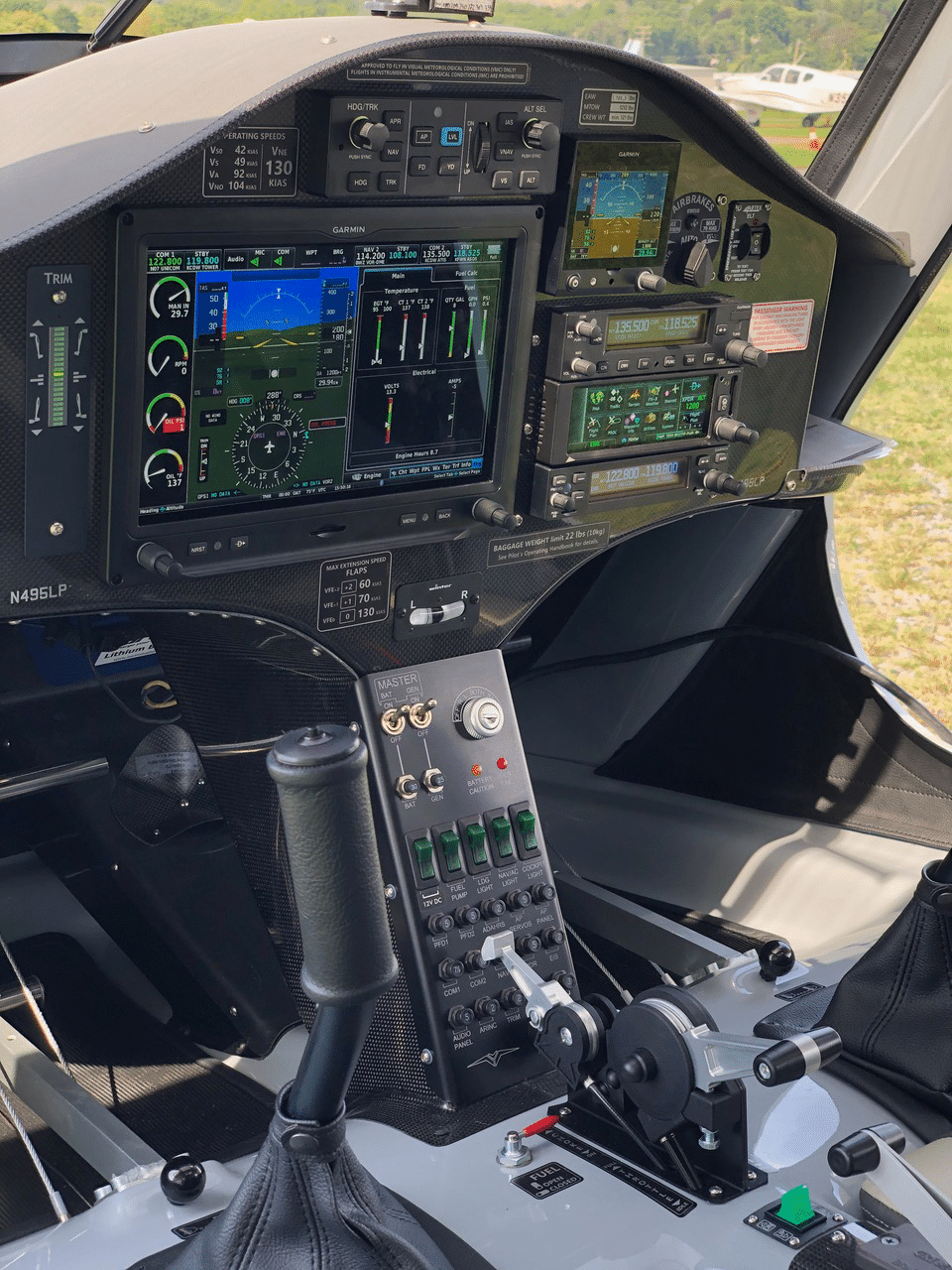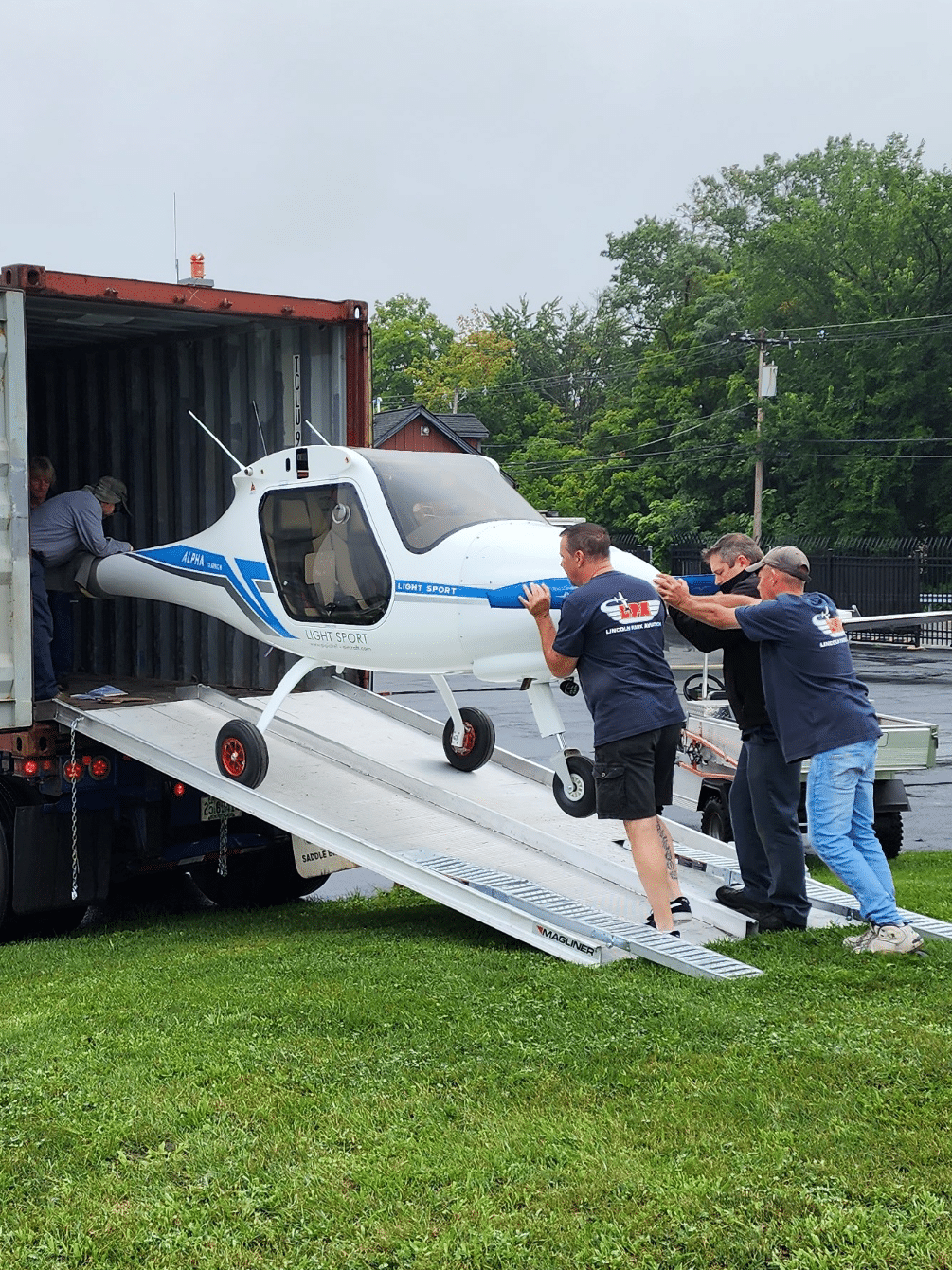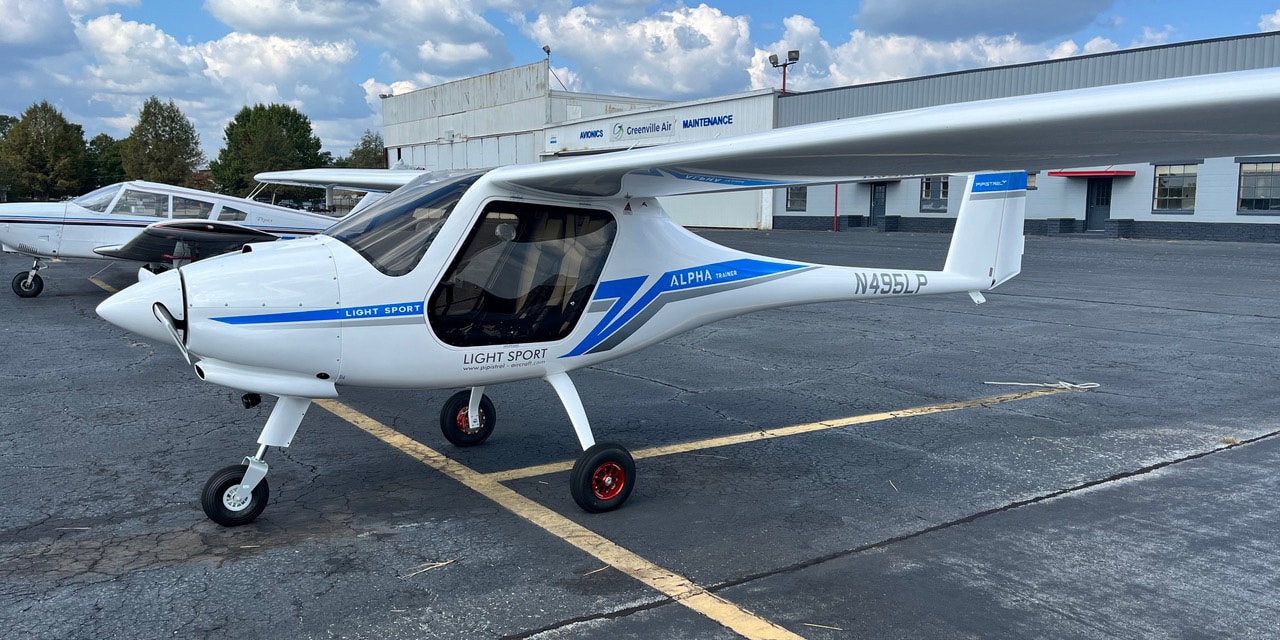
Klaus Baden has always been passionate about flying. Since earning his private pilot’s license back in 1996, he has soared through skies all over the world. When he moved to the United States, his love for aviation didn’t wane, but he wanted to solve a new challenge: finding a way to fly affordably while minimizing environmental impact.
A lasting business partnership
Baden had known Curt McGahhey for several years and reconnected with him upon moving to the US. McGahhey, a retired military pilot and now dedicated flight instructor, had recently started his own flight school in Greenville, SC after becoming unimpressed with the lack of student focus at other schools. Curt’s mission was simple: provide a better experience and value for his students. He wanted to create a place where people could learn to fly affordably, and where honesty and dedication were the cornerstones of instruction.
“CAVU Flight School was really founded to give people a better experience and a better value for their money,” McGahhey said.
But in an area saturated with flight schools, McGahhey knew he had to be different with more than just company culture. He wanted to offer students something affordable without compromising on modern technology. Baden had found the perfect solution for both of them.
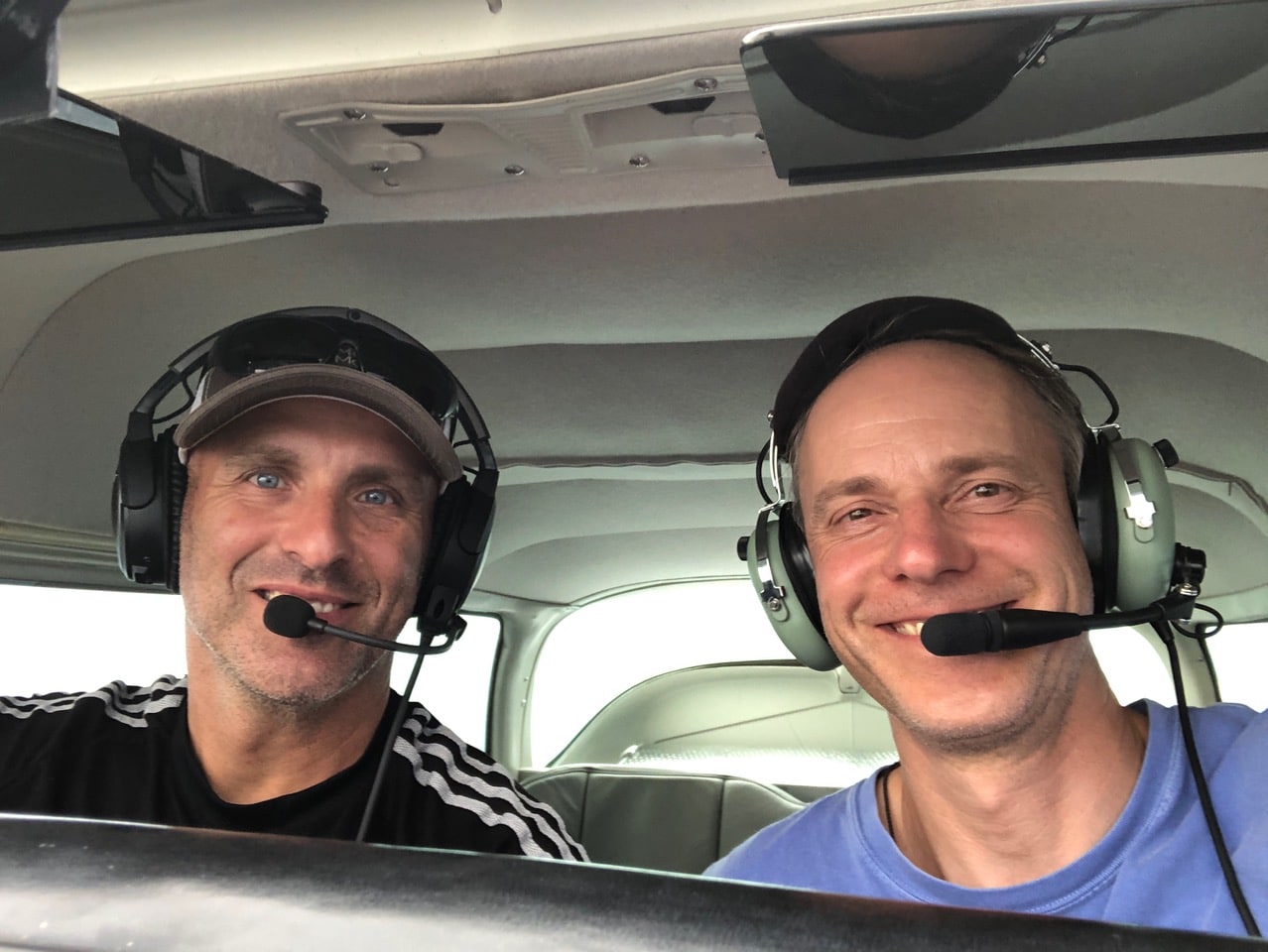
(Picture: Curt McGahhey and Klaus Baden enjoy a flight together from their base in Greenville, SC.)
The economical business choice
“I found the Pipistrel Alpha Trainer and after studying the numbers, I knew this was the way to go,” Baden said. “I’ve flown many other aircraft before, but from an operational cost viewpoint, they don’t even come close to the Alpha Trainer. I liked the idea of an attractive price point while offering modern aviation technology – basically a class cockpit, including collision avoidance, weather information, the ability to upload your flight plan right into your Garmin G3X, a good autopilot and the ballistic parachute for additional safety. With the partially redundant equipment installed, the airplane is actually approved for IFR training. We did the business case and the calculations, and we got to an operational cost point in the low three digits, which I found really cool.”
(Pictures: CAVU Flight School’s Alpha Trainer Garmin G3X Cockpit (left). The Alpha Trainer being unloaded after delivery (right).)
McGahhey added, “If you look at a Pipistrel that’s burning four gallons of fuel an hour doing training in the pattern versus the 13-16 gallons of another aircraft, the savings from fuel alone is between 60 and 75%. If we can make this work in the long run, just with the fuel savings alone, you may see a whole fleet of Pipistrels in Greenville.”
While the Alpha Trainer was a new aircraft for McGahhey, he knew he couldn’t pass up the opportunity to operate such an economical aircraft.
“For the price point in that market, nobody can match Pipistrel. There’s nothing that even comes close.”
– Curt McGahhey, CAVU Flight School Owner
Capitalizing on an untapped market – Light Sport Aircraft (LSA) training
The Alpha Trainer can currently be used for a private pilot’s license training, day and night VFR training, IFR training as well as FAA-certified Light Sport Aircraft (LSA) training. The LSA part was new to McGahhey, but something he’s watching as the FAA is considering the Modernization of Special Airworthiness Certification (MOSAIC), which is a proposal to expand the definition of LSA therefore including more light sport aircraft to meet certification requirements.
“When Klaus came to me about this, I thought wow, I need to really think about training LSA pilots and find out if there’s even a market for it,” McGahhey said. “Come to find out, there is. There’s a medical requirement difference, so there’s a whole plethora of people out there who haven’t been served because they can’t go the traditional route from a traditional school.”
Klaus added, “Also, we wanted to be one step ahead of everyone else. When I talked to Curt I said once we get our network for maintenance, we’re just waiting on MOSAIC to come through and then light sport aircraft will pop up everywhere and we can say we’re already familiar and ahead of the game.”
“We feel we have entered this market at the right time. We’re a little bit ahead of everyone else and can build some experience around it.”
– Klaus Baden, Pipistrel Alpha Trainer Owner
McGahhey said offering LSA has accomplished one of his goals – providing differentiated service to his customers. He said he gets calls several times a week from potential students looking into a light sport license, and CAVU Flight School benefits because most other schools don’t offer it.
Student feedback
As word spread about the new addition to the fleet, more students flocked to McGahhey’s flight school. They were drawn not only by the affordability and efficiency of the Alpha Trainer, but also by the modern learning experience it offered. This was important to McGahhey who needed to stay true to his flight school’s mission of creating the best student experience.
“Everybody that’s flown it really likes it. It’s different because it doesn’t have traditional brakes so it’s a transition. It’s very slick,” he said. “We’ve had a few students move over from other aircraft. They like that it’s newer with the glass cockpit and they want to get into something fresh and exciting. Plus, it’s a cool looking plane and it is fun to fly and be around.”
What’s next
For McGahhey and Baden, the forward-thinking investment is continuing to pay off.
“Cost point, you can’t do wrong,” Baden said. “For that amount of money, you get a lot of plane and technology for it. If you’re looking for a plane that can be operated in an efficient way, the Alpha Trainer is the way to go.”
But the two also said they are continuing to look to the future to find new ways to grow the flight school and bring more affordable and efficient aircraft training experiences to Greenville. McGahhey said he’s actively looking to add more CFIs to the school and maybe more aircraft eventually. He says their ability to build the market before others is what he sees paying off.
If the business partners were to give another flight school advice, it would be this – understand your unique mission for the aircraft and ensure the aircraft concept matches it. And in a flight school environment, don’t forget to consider Pipistrel.
For more information on the Alpha Trainer, click here.
“I think in the long run it’s going to be economically the best airplane we’ll have.”
– Curt McGahhey, CAVU Flight School Owner
